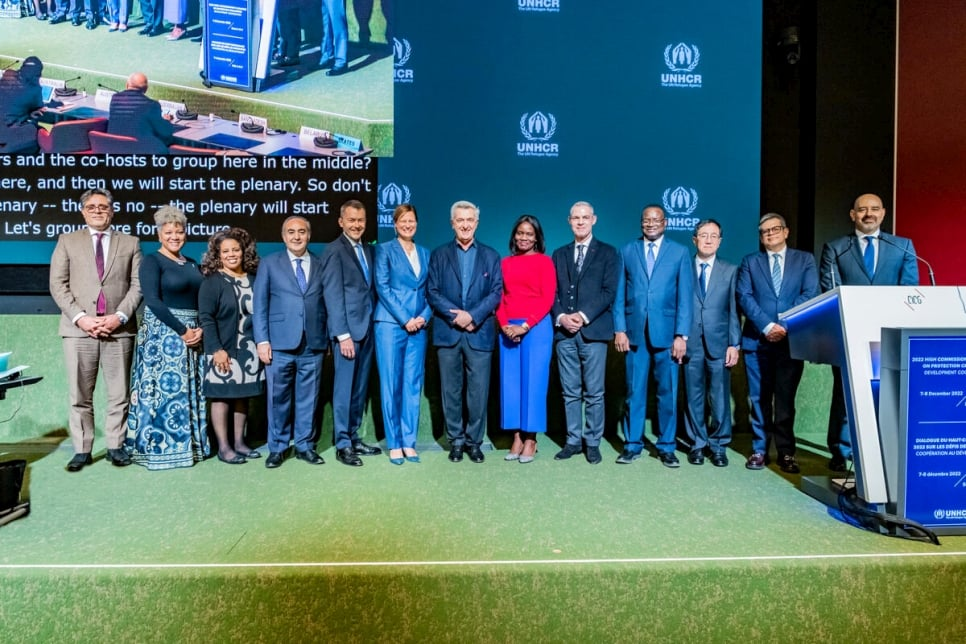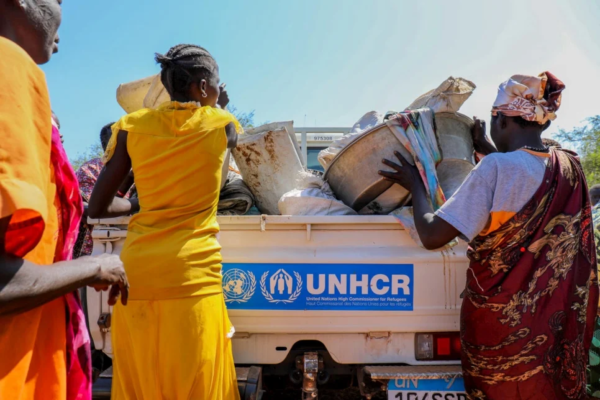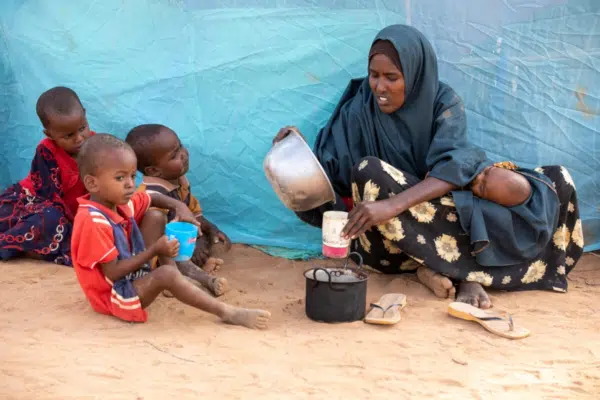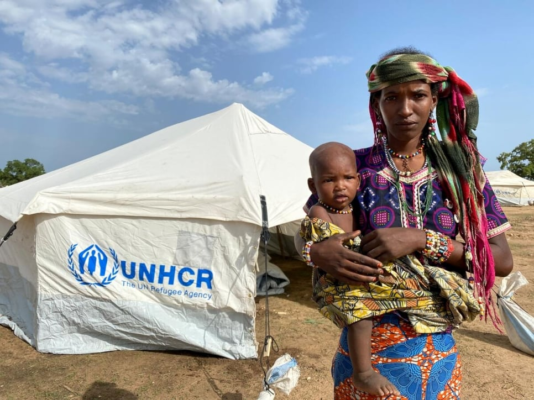
Co-hosts H.E. Mr. Jürg Lauber, Ambassador of Switzerland (fifth from left), and UN High Commissioner for Refugees Filippo Grandi (centre) with the incoming and outgoing co-convenors of the Global Refugee Forum. © UNHCR
GENEVA – UNHCR, the UN Refugee Agency, confirmed today that six states – Colombia, France, Japan, Jordan, Niger and Uganda – will co-convene, together with UNHCR, the next Global Refugee Forum (GRF), scheduled for December 2023. The forum will continue to be hosted by Switzerland and UNHCR, and will be held in Geneva.
The GRF is the world’s largest international gathering on refugees and was first launched by UNHCR in 2019 as a quadrennial platform.
The UN High Commissioner for Refugees, Filippo Grandi, announced 2023’s co-convenors during an official handover ceremony in the closing plenary of a two-day Dialogue on Protection Challenges.
Despite the challenges of the COVID-19 pandemic, the proliferation of conflict, and the consequences of the energy, food, economic and climate crises, the momentum and commitment generated by the first Forum in 2019 has been immense, with states, organizations and other stakeholders producing more than 1,600 practical pledges in support of refugees in areas from job creation to education, protection, clean energy and social inclusion.
In a joint statement, the co-convenors committed to “go beyond the implementation of the existing pledges and initiatives – to truly bring the comprehensive approach to refugee situations to life.”
“Much progress has been achieved over these past years,” Grandi said. “We will work closely with the co-convenors, who are already leading by example, over the next 12 months to mobilize even more support from across society to better protect and find solutions for refugees.”
The first GRF in 2019 was co‐hosted by UNHCR and Switzerland and co-convened by Costa Rica, Ethiopia, Germany, Pakistan and Türkiye. The Forum brings together governments, international organizations, humanitarians, local authorities, civil society, development actors, the private sector, refugees themselves, and others with the aim of improving support, cooperation, solidarity and solutions for people who are forcibly displaced and their host countries.
For more information on this topic, please contact:
- In Geneva, Shabia Mantoo, mantoo@unhcr.org, +41 79 337 7650
- In Ottawa, Levon Sevunts, sevunts@unhcr.org, +1 613-286-6975





